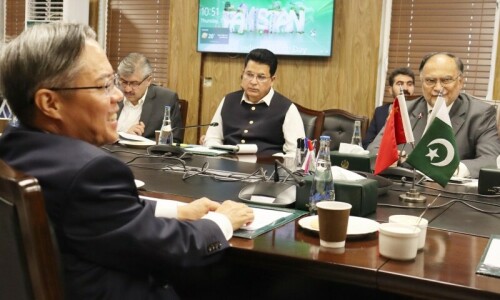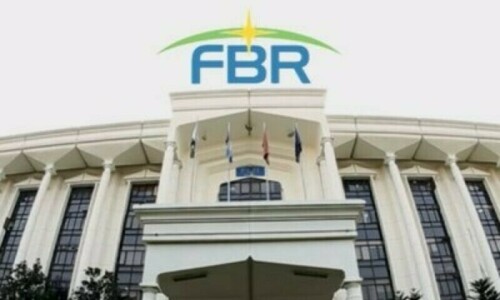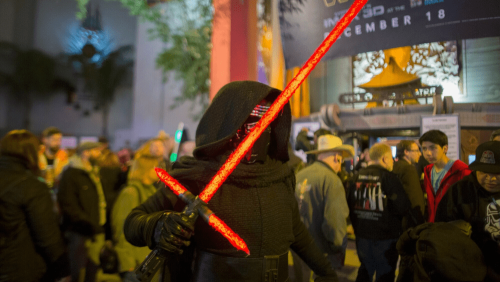
‘What is that one trait in Faiz that you liked most’ is a question I have often been asked. My reply has invariably been, ‘His silence’.
I think that sums up the great man’s personality. It was not what Nasir Kazmi, perhaps, once said that he was lonely even in company. Faiz Saheb was one person who was never alone even in his loneliness. He loved company and he also loved to listen to people.
He was never there to approve or disapprove people. He liked to hear different points of view and gave his own opinion only when he was asked to do so. All that he had to convey he did so articulately through his pen. I can safely conclude that his silence measured the depth of his personality.
In the mid-1970s his house in Block H, Model Town, Lahore, was open to one and all. It was there that as a member of a young team of singers and composers I got to spend some invaluable time and meet eminent men of letters such as Sufi Tabbassum, Muneer Niazi, Ahsan Danish, Ejaz Batalvi, Intizar Husain and Munnoo Bhai, all of whom came to meet him.
We were in those days doing Shoaib Hashmi’s TV programme, Such Gup for PTV. When I say we, I mean his daughter Salima Hashmi, Farooq Qaiser, composers Shahid Toosy and Arshad Mahmud, my husband to be – Sheharyar Zaidi, and, of course, yours truly.
I remember quite distinctly that Faiz Saheb sat on the sofa smoking cigarette after cigarette, while Shahid and Arshad set his poems to music and the two singers, me and Sheharyar, sang them with gay abandon. While negotiating some difficult and even not so difficult notes I would find him smiling affectionately and encouragingly. It seemed he was enjoying those moments no less. His was, I think, the world’s most disarming smile.
A few weeks before his 65th birthday, Shoaib Hashmi floated the idea of presenting him with an LP featuring musical renditions of his poems on February 13, 1976. We were all game. I was to sing all the numbers with Shaharyar joining me on a rare geet that Faiz wrote Barkha barse chhat par, mein tere sapne dekhon. Shahid Toosy and Arshad.
Mahmood composed different numbers and we rehearsed in no time and recorded them at the Lahore studios of EMI. Patras Bokhari’s endearing son Mansoor Bokhari who headed the recording company was a collaborator, if I may use the word. It was a race against time, which we ultimately won and that too without sacrificing the quality in any aspect of recording or production.
Faiz Saheb was visibly happy with the present he got. He showered us with smiles. That I thought was our reward. Nayyara sings Faiz, as the LP was titled, was later issued as an audio cassette. It was also released by the Gramophone Company of India. The album, now available on CDs, has been a consistent seller. It was widely reviewed and continues to be highly appreciated even now.
We were supposed to release the second volume of Nayyara sings Faiz soon after and many tracks were recorded but somehow work on the album could not be completed. I am now pleased to say that the sequel should be in the hands of Faiz lovers in a month or so.
—Nayyara Noor spoke to Asif Noorani














































